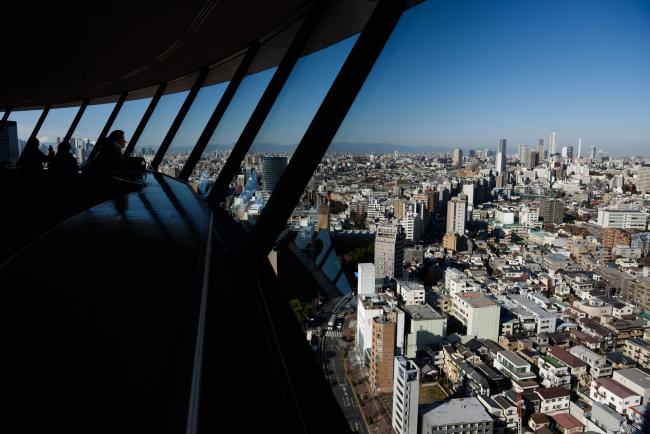(Bloomberg) -- Japan’s key gauge of inflation dropped to the lowest level since 2017, the latest indication of the difficulty faced by the Bank of Japan in generating price growth as speculation grows that it may add to its stimulus as early as next month.
Consumer prices excluding fresh food rose 0.5% in August from a year earlier, matching economists’ median estimate, according to the internal affairs ministry. A drop in energy prices was the biggest factor in the slowdown.
Key Insights
- Japan’s key inflation gauge hasn’t risen above 1% in years and is expected to remain subdued in the coming months as education costs weigh on prices.
- Governor Haruhiko Kuroda Thursday ordered a review to see if developments overseas have the potential to kill off momentum in Japanese prices toward the BOJ’s 2% target. Compared with a month ago, Kuroda said he’s now “more inclined” to go ahead with easing.
- Energy prices, which have been contributing less to price gains since October last year, fell overall for the first time since January 2017.
- Stripping out the effects of a drop in energy costs, August’s inflation data may leave room for the BOJ to argue that prices are actually moving in the right direction. Consumer prices excluding both fresh food and energy rose 0.6% pace in August, exceeding economists’ forecasts for a 0.5% gain and above last year’s average pace of 0.4%.
- “The BOJ will probably want to say price momentum is still upward,” said Hiroshi Miyazaki, a senior economist at Mitsubishi UFJ Morgan Stanley (NYSE:MS) in Tokyo. “But they’ve already been pushed into a corner by price and economic data and will have to think about additional easing.”
- A 2 percentage point sales tax hike that comes into effect next month presents another risk the BOJ will have to manage. The last increase to the tax in 2014 triggered a contraction of more than 7% the following quarter. Consumer spending has been supporting economic growth during an export slump this year.
“Any pickup toward the 2% target is going to take a long time. We think the Bank of Japan will need to prepare for a longer-term effort to stoke consumer prices with a more flexible operational approach to its stimulus.”
-- Yuki Masujima, economist
Click here to read more
Get More

- Overall consumer prices rose 0.3% in August, matching economists’ median forecast.
- A 0.2% drop in hotel rates also weighed on inflation.